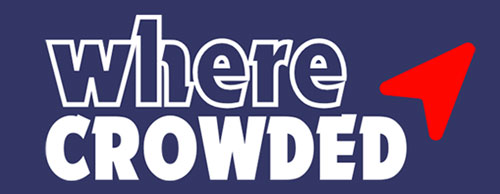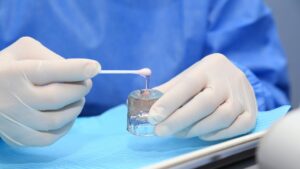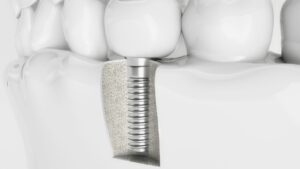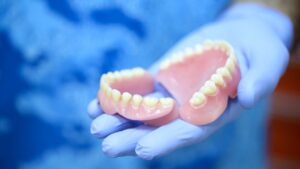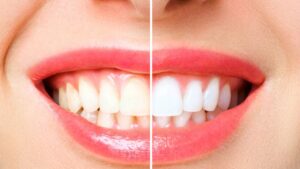Dental implants are a permanent solution for missing teeth. An implant involves a screw inserted into the jawbone, which acts like a replacement root. After it heals, a crown is placed on it to replace the tooth. Implants are one of the most expensive dental procedures, but they are long-lasting and feel very natural.
Typically, when we mention the cost of a dental implant, we are referring to the complete procedure for one implant tooth (implant screw + crown). How is the pricing like for dental implants and what are the factors that affect the price? Here’s what to expect.
1. Public Institutions
You can get dental implants at places like NDCS (National Dental Centre) or public hospitals. However, dental implants are usually not subsidized by default because they are considered elective (unlike for example, extracting a bad tooth which is necessary).
The average cost of one dental implant with crown at public institutions is around $4,000 to $6,000. For example, MOH’s data shows NDCS’s average fee for an implant with crown is about $4,859 and other hospitals ranged from ~$4,600 to $6,400 on average.
2. Private Dental Clinics
Prices at private dental implants can range quite widely. Many general dental clinics in heartland areas offer competitive implant rates. Some advertise packages around $3,500 – $4,500 for a single dental implant inclusive of crown. These packages often assume no complications like bone grafting.
In contrast, a specialist or high-end dental implant center in Orchard Road might charge $5,000 to $7,000 for the same, especially if using premium dental implant brands or techniques. Complex cases (for example, needing multiple dental implants or zygomatic implants) can cost tens of thousands – which is why one might hear of costs up to $15,000 mentioned in some cases.
For a single tooth implant in 2025, a realistic typical range in private practice is about $3,000 to $6,000.
Indeed, the overall reported range is broad. From about $1,200 to $15,000, but $1,200 would be an exceptionally low cost scenario (possibly just the implant screw without crown or after MediSave coverage is taken into account). One dentist noted their implant and crown price range is $3,500–$4,500 with $1,250 commonly covered by MediSave, which implies about $2,250–$3,250 cash portion in those cases.
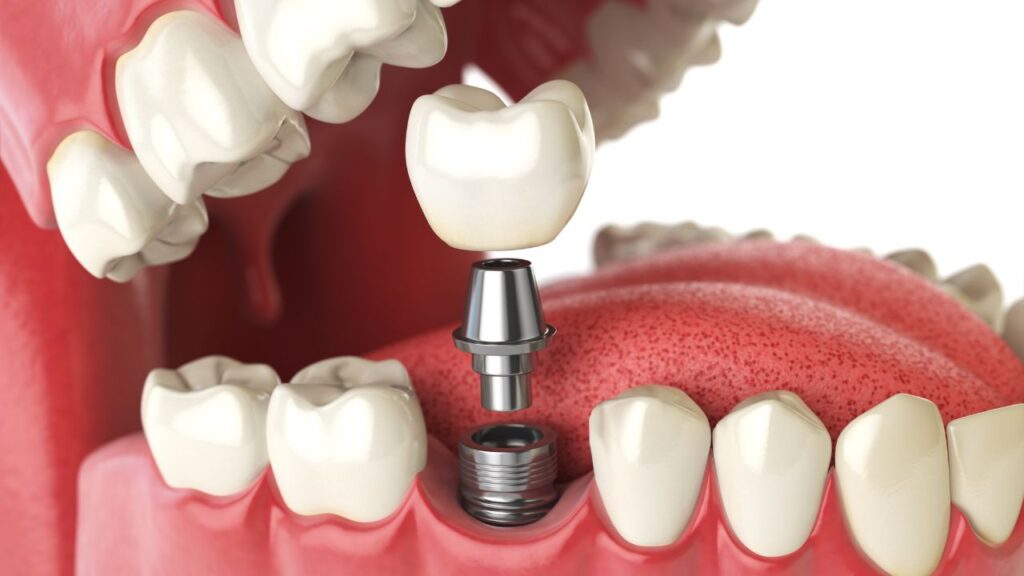
However, some private dental clinics position themselves as more affordable options.
Casa Dental, for example, offers a comprehensive single dental implant package at $2,800 (inclusive of GST), which covers the implant placement, crown fabrication, necessary medications, and all follow-up appointments. Trust Dental Surgery advertises a dental implant with a Porcelain-Fused-to-Metal (PFM) crown that costs $2,249 before GST.
This variability in prices underscores the importance of comparing prices and understanding the specific services and materials included in the cost offered by different private dental practices.
3. Subsidies and MediSave
Generally, there are no CHAS subsidies for dental implants (dental implants are not covered under CHAS basic or major treatments; CHAS focuses on dentures as the removable alternative). Public subsidies also don’t apply since it’s an elective, unless perhaps the dental implant is needed as part of a medical condition rehab, which is uncommon.
However, CHAS is able to help with other related costs like consultations or extractions.
The big relief for dental implant cost is MediSave. Implants are surgical procedures, so you can use MediSave to pay part of the cost. The MediSave claimable amount depends on the complexity of the surgery (how many implants, any grafting, etc.).
Typically, for one straightforward dental implant, you can claim around $1,250 from MediSave. For more complex cases or multiple implants in one surgery, the withdrawal limit can be higher, sometimes $2,150 or more if it’s a large surgery.
There are also overall Medisave withdrawal limits, such as a maximum of $7,500 for 8 implants. MediSave can be used at both public and private clinics and it can even be a family member’s MediSave account if needed.
4. Cost Of Dental Implants: Public Vs Private
To summarize, dental implants are costly but effective. Public institutions don’t necessarily save you a lot of money on dental implants (unlike basic dental work) because of the elective nature, but they offer trusted service and sometimes slightly lower fees.
Private clinics have a range of pricing; you might find a good deal with an experienced general dentist, or pay a premium with a renowned specialist. Always ensure you are getting a breakdown of the costs (implant surgery, crown, any extras) and use MediSave to the max.
5. Factors Influencing Dental Implant Costs
i) Number of Implants Required. The most significant factor affecting the total cost is the number of missing teeth being replaced. A single tooth implant will naturally be less expensive than replacing multiple teeth.
ii) Type of Implant
- Material. The material of the dental implant post itself plays a role in the pricing. Titanium implants are the most widely used and often the most cost-effective option due to their strength, durability, and biocompatibility. Zirconia implants, a newer, metal-free alternative favored for their aesthetic qualities, typically come at a higher cost.
- Brand. The brand of the implant system can also influence the price. Well-established brands with a strong history of research and successful outcomes, such as Straumann (Switzerland) or Hiossen (USA) , may be more expensive than other reputable brands, including those from Korea like Osstem or Dentium.
- Type. Different types of implants are designed for specific clinical situations and can have varying costs. Besides the standard endosteal implants, options like subperiosteal implants (used when bone height is insufficient), mini implants (for limited spaces or denture stabilization), same-day implants (placed immediately after extraction), and zygomatic implants (anchored in the cheekbone for severe upper jaw bone loss) each have their own price considerations.
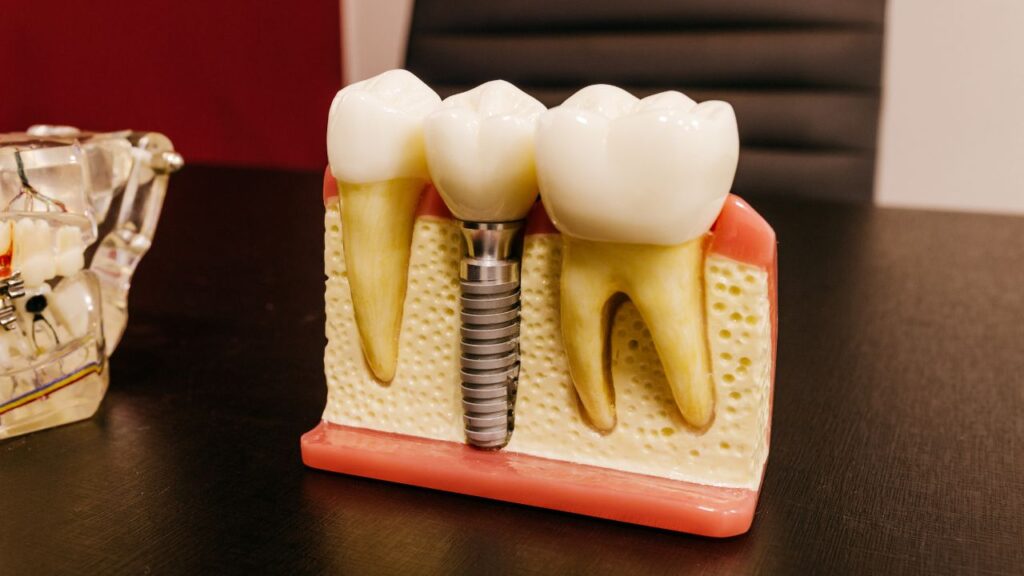
iii ) Complexity of the Procedure. The need for additional procedures before or during the dental implant placement can significantly impact the overall cost.
- Bone Grafting. When the jawbone lacks sufficient density or volume to support an implant, a bone grafting procedure is necessary. The cost of bone grafting can range from $300 to $2,000 or more.
- Sinus Lift. For implants in the upper jaw, particularly in the back teeth area, a sinus lift might be needed if the sinus cavity is too close to the jawbone. This procedure can cost between $1,000 and $3,500.
- Complex Cases. Cases involving patients with significant medical or dental histories, or individuals with long-standing missing teeth who have experienced substantial bone and gum loss often require more specialized care and can therefore incur higher costs.
iv) Type of Crown Material: The material chosen for the dental crown, which is the visible replacement tooth, can also affect the price. Options include metal-fused porcelain crowns (often a more affordable and durable choice), all-ceramic crowns (known for their natural appearance), and zirconia crowns (offering a balance of strength and aesthetics).
The cost of the crown can range from $1,000 to $3,500 , depending on the material and the complexity of its fabrication. Read our ultimate guide on the cost of getting dental crowns to find out more.
v) Use of Advanced Technology. Dental clinics that utilize advanced technologies like computer-guided surgical planning for precise implant placement and CAD/CAM systems for custom crown fabrication may have higher overall treatment costs. These technologies often contribute to improved accuracy, reduced risks, and better aesthetic outcomes but require significant investment in equipment and training.
6. Final Thoughts
We have illustrated the diverse pricing within Singapore’s dental implant market. Factors such as the clinic’s location, the dentist’s specialization, the type of implant and crown materials used, and the inclusion of additional services all contribute to the final cost.
Always get a cost breakdown. If the cost of dental implants is prohibitive, discuss alternatives with your dentist, like bridges or dentures, which might be cheaper (though each has pros/cons for oral health).
